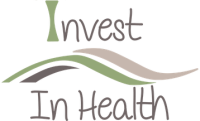What is the deal with raw honey?
Many consumers are blissfully unaware of the fact that globally, honey is one of the top 10 products most susceptible to food fraud. Adulterated honey that is mixed with sweeteners, syrups or any non-bee product has become a major concern for some of the world’s largest honey-consuming countries, which is why raw honey is so important.
It is worth highlighting that on average, 76% of South Africa’s “natural honey” or “choice grade” came from China in the past 17 years where it is claimed that industrialised production methods are used where “unripe” honey is harvested early and mechanically dried, producing a poorer-quality honey for less. Furthermore their reputation has been tainted by several scandals in recent years: among them treating bee disease with antibiotics, one of which is potentially carcinogenic.
South Africa is not immune to these concerns; honey adulteration can take place once a product has been imported. A perusal of honey on retail shelves will typically reveal that much of our commercial honey is imported and is a blend of honey from various countries and in some cases even blended with syrup.
These don’t change the appearance of the honey but do change the taste. Some honeys blatantly tastes like syrup. Honey is an easily adulterated product, however, and difficult to detect on the shelf, however a sparkling clear honey is often a giveaway of an unnatural, processed and filtered product.
When honey is labelled as being produced locally, but in reality it has been imported or diluted with imported honey, not only is the consumer misled, but it means that the local beekeepers cannot compete with the low pricing of these adulterated honeys.
Support your local beekeepers and buy only raw honey, unheated, unfiltered and unradurized.
Why raw honey?
Contrary to popular belief – not all honeys are equal!
For honey to contain the medicinal and health benefits everybody is talking about it has to be raw, unheated, unfiltered and unradurised.


Watch this video, to learn more about the differences between RAW and COMMERCIAL honey!
Invest in Health sells 100% raw honey!
Background of our honey supplier
– sweet to the soul, and health to the bones – (Proverbs 16:24)

Invest in Health’s raw honey supplier is “Apis Honey“.
At Apis Honey we only bottle and distribute the highest quality raw honey, unfiltered, unheated and unradurised in order to offer our client the purest, unadulterated honey available – straight from the comb – as nature intended, and from there our tagline
“sweat to the soul and health to the bones”.
Soon we will also supply honey infusions such as raw honey with tumeric and raw honey
with organic cinamon for its medicinal value and in the not too distant future also other
hive-related beauty products.
Locally produced food is more environmentally friendly. Apis Honey not only manages their own hives, but they are developing and maintaining apiaries in the far north of Zambia, where local beekeepers – trained by themselves – manages and maintains the hives. Bees from these apiaries forages in natural and uncontaminated forests and as such they do believe
that not only does this give Apis Honey the advantage of “single origin” honey with a traceability but they will be able to bottle an “organically certified” honey as soon as all the tests are concluded.
By supporting your local beekeeper and the rural beekeepers producing raw honey – as a source of income to sustain a family – you are not only harvesting the health benefits of raw honey but you are also contributing to a sustainable future and at the same time protecting our precious bees.
A quick look at the indirect benefits of beekeeping are:
• Many of the rural beekeepers are reliant on honey as their sole source of income
• Increased food security
• Crop protection from raiding wild animals (ie; bees are used as deterrent for elephants)
• Gender equality and the empowerment of women
• Subsidiary activity to farming practice and increased yield on crops
• Landless agriculture
• Creating value from inaccessible land due to terrain as well as wild forests areas while
maintaining a small carbon footprint
• Training, support and upliftment of existing and traditional beekeepers
• Reversing the global trend of urbanisation
• Slowing deforestation


